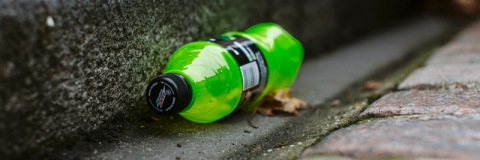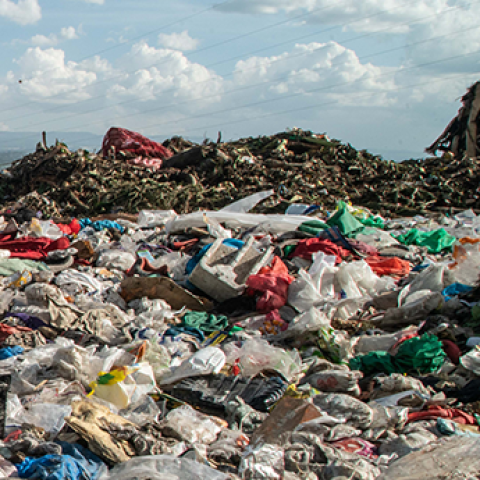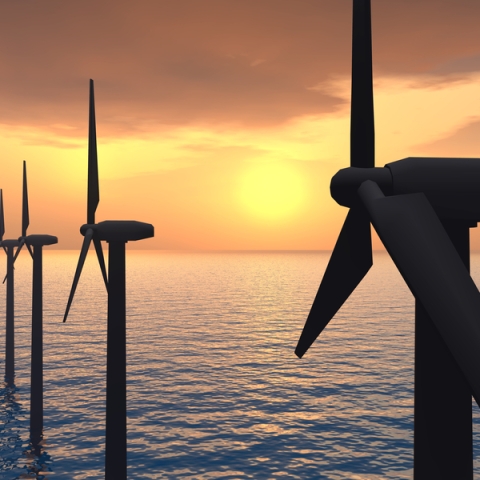
Mapping Portsmouth’s Plastic
We’re collaborating with Jetsam Tech on what is believed to be the world’s first programme of city-wide plastic pollution surveys using a citizen science-based approach, thanks to funding from the Flotilla Foundation.
Understanding urban plastic waste
In order to take targeted action on plastics, we first need to know where the plastic waste is. But currently there is an absence of any city-scale data on plastic pollution. This is largely because of the challenge of street-level data collection across an entire city.
Citizen science has scope to resolve this problem. It allows a scale of data collection which would be prohibitively expensive for a local council to conduct.
As an island city, Portsmouth is an ideal laboratory for a project like this. As one of the most densely populated areas in the UK and with borders clearly defined by its waterfront, achieving a full picture of the city’s plastic waste is achievable.
Portsmouth’s plastics survey
This project aims to find out whether a citizen-science approach can successfully track urban plastic waste and produce actionable findings to design ways of alleviating plastic pollution. Specifically, we aim to answer the following:
-
Where on Portsea Island are plastic pollution hotspots found?
-
Does the location of plastic pollution change over time in response to factors including weather, time of year, and significant events?
-
Can identified patterns in type and location of plastic pollution be used to determine potential sources of pollution, thereby allowing the creation of interventions which prevent leakage into the environment?
Get Involved
Our survey weekends were run between November 2021 and May 2022, but you can still submit your plastic litter sightings via the app at any time.
- Read the research participation information
- Download the Jetsam app from iOS and Android Stores, or the Jetsam website, and register
- Take photos of plastic litter you come across in the city using the Jetsam app
Data collection via a mobile phone app
We’ll engage the local community to become citizen scientists that regularly take part in city wide surveys of plastic litter.
Central to the surveys is the Jetsam app, co-founded by Jetsam Tech, a Portsmouth-based environmental tech company started by Louis Capitanchik and Steve Bomford.
Citizen scientists will download the app and use it to take photos of any plastic waste they encounter around the city. The app will capture data about the location, volume and types of plastic pollution. Collectively the photos will form a ‘plastic heatmap’ of the local area, revealing when and where plastic waste is building up.
Developing an evidence base to tackle plastic litter
University researchers will analyse the data gathered to better understand the patterns and movement of plastic waste in Portsmouth and develop solutions to reduce plastic entering the environment.
We’ll work with institutions with relevant plastic waste and pollution responsibilities, including Portsmouth City Council, environmental regulators and waste contractors to use the survey findings to help reduce plastic use and divert plastic leakage into appropriate waste processing channels.
The findings can also be used by the wider Portsmouth community, including civic leaders and businesses, to reduce the amount of litter on our streets.
The project will use the crowd-sourced image analysis platform ‘Zooniverse', which was developed by the University of Portsmouth, to increase the analytical capability of the app so that it can be rolled out to other cities across the world.
Impact
The project will reduce urban-sourced ocean plastic pollution through the development of interventions to reduce plastic waste use and leakage into the environment.
Interventions may include campaigns to reduce plastic use and increase recycling rates, working with specific organisations to reduce their plastic leakage and better placement of plastics recycling points. This could have a noticeable impact on the city providing residents with a cleaner and safer place to live.
Portsmouth will serve as a test bed for these approaches, with the intention of scaling up methods for use in other cities in the UK and globally.
The project forms part of our Revolution Plastics initiative, which is assembling teams of scientists, businesses and citizens to find solutions to the world’s plastic problem.
Funding
The research is funded by a charitable donation to the University of Portsmouth from the Flotilla Foundation. The value is £105,776 and the project runs until 30 June 2022.
Project researchers
- Dr Cressida Bowyer, University of Portsmouth, Lead Researcher
- Samuel Winton, University of Portsmouth, Researcher
- Steve Bomford, Jetsam Tech Ltd, Community Engagement Lead
- Louis Capitanchik, Jetsam Tech Ltd, Software Engineer
Discover more plastics research
Revolution Plastics Institute
From combatting microplastics to analysing plastic policies around the globe, we’re putting our research into practice, working with local groups, organisations, businesses and individuals to solve the planet's plastic problem.

Sustainability and the Environment
In this research theme – one of five within the University – we're exploring topics like climate change and plastic pollution, and focusing on how we can help preserve the planet.




